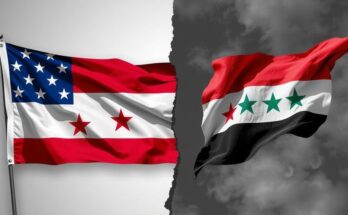A group of Israeli soldiers is publicly refusing to serve in Gaza, citing ethical conflicts regarding military orders and actions. This movement is gaining traction, with over two hundred signatories advocating for a ceasefire amid increasing international pressure and allegations of war crimes. Soldiers recount traumatic experiences and moral injuries encountered during their service, calling for change in military conduct.
The ongoing conflict in Gaza has led to a stirring backlash among some Israeli soldiers, who are publicly voicing their discontent with military operations against Palestinians. Yotam Vilk, an officer in the armored corps, has shared troubling accounts of orders to shoot unarmed individuals within a designated buffer zone. He reflects on the traumatic experience of witnessing at least twelve deaths, particularly that of a Palestinian teenager whose fate exemplifies a broader military policy that dehumanizes Palestinian civilians.
As of now, over two hundred soldiers have signed a letter, threatening to refuse service should a ceasefire not be achieved. This movement, though small, aims to catalyze others to speak out about actions they perceive as unethical during the recent 15-month conflict. The refusal particularly intensifies as international pressures mount on both Israel and Hamas to reach a compromise. Prominent leaders such as U.S. President Joe Biden and President-elect Donald Trump are advocating for a resolution before the upcoming inauguration on January 20.
Several soldiers have recounted their unsettling experiences, describing indiscriminate killings and unauthorized destruction of homes. Reports include instances where soldiers were directed to demolish homes lacking any clear threats and accounts of vandalism and looting within civilian dwellings. Despite these allegations, the Israeli Defense Forces maintain that they do their utmost to avoid civilian casualties and conduct thorough investigations into claims of misconduct.
International organizations have accused Israel of committing war crimes, leading to investigations by the International Court of Justice and the International Criminal Court. Despite the backlash, the Israeli military continues to denounce any refusal to serve, insisting that each case is scrutinized individually. Although the consequences for soldiers who disobey orders can be severe, none of the signatories of the letter advocating for a halt in their service have faced detention thus far.
Soldiers for the Hostages, the initiative backing the letter, is actively working to encourage further participation and awareness of the ethical dilemmas faced by soldiers. Some veterans express a profound sense of conflict, grappling with feelings of guilt and moral injury that arise from actions taken during their deployment. Practitioners highlight the necessity of discussing these experiences to facilitate healing and possibly promote systemic change within military operations.
The article addresses the moral conflict arising among Israeli soldiers amidst the intensifying war in Gaza. It emphasizes a small but growing movement among soldiers who are refusing to serve due to ethical concerns regarding their actions and orders received during the conflict. With pressure mounting for a ceasefire between Israel and Hamas, the conversations surrounding military conduct and morality have become more prominent, reflecting internal disputes within the military concerning the treatment of civilians and the overarching policies governing their engagement in combat. Furthermore, global scrutiny on Israel via accusations of war crimes adds another layer of complexity to the soldiers’ experiences and their subsequent actions of protest.
The voices of dissent among Israeli soldiers signify a rising awareness of the ethical implications of warfare in Gaza. As more soldiers express their refusal to continue participating in military operations based on moral grounds, the movement to challenge military conduct grows. The interplay of international pressure and internal conflict within the ranks highlights a significant moment within the ongoing conflict, underscoring the need for transparency and accountability in military operations.
Original Source: www.arabnews.com




